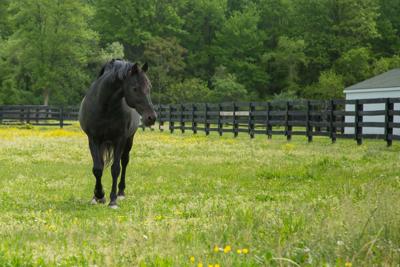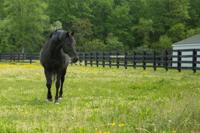KENT CO., DE - The Delaware Department of Agriculture is alerting horse owners to increasing cases of a neurological disease afflicting horses in Kent County and linked to corn-based food.
Officials say veterinarians recorded symptoms of the neurological disease between April 22 and May 17 and sent samples of feed given to the affected horses for toxic analysis. According to the Department of Agriculture, all samples returned with levels of fumonisin, a fungal toxin.
Fumonisin is produced by mold that grows on corn. Contamination can be caused by various factors including weather and improper storage, according to officials. Horses and rabbits are especially prone to the toxin, which causes a softening of the brain leading to lethargy, head pressing, wobbly gait, tremoring, circling, and potentially death.
Anyone who purchased horse feed in April in the Kent County area is advised to contact their supplier and ask if there are any related concerns.
The Department of Agriculture encouraged those caring for animals to practice the following when purchasing feed:
-Make sure that the manufacturer has a guarantee that the feed has been tested for mycotoxins before distribution. This is commonly found on the manufacturers’ website.
Consult with your veterinarian about the best brand and type of feed for your animal based on their age, lifestyle, and breed.
-Use feed that is produced specifically for the animal species you own. There may be additives or nutrient levels in feed produced for other species that are toxic for horses, even at residual levels.
-It is critical for livestock owners to have a relationship with a livestock veterinarian. This veterinary-client-patient relationship is best established when animals are healthy so that the veterinarian is familiar with the animal and their baseline health status. If owners notice their animals experiencing signs of illness, they should contact their veterinarian immediately.
“Animal owners who believe they may have purchased contaminated feed are instructed to dispose of the feed immediately and not to feed the product to their livestock or poultry,” Agriculture officials said in a statement Friday. “Owners with questions or concerns about feed should contact the supplier for more information. Further guidance on feeding should be sought from a veterinarian.”
Animal health questions in Delaware can be directed to the Poultry and Animal Health Section of the Delaware Department of Agriculture at 302-698-4500.



